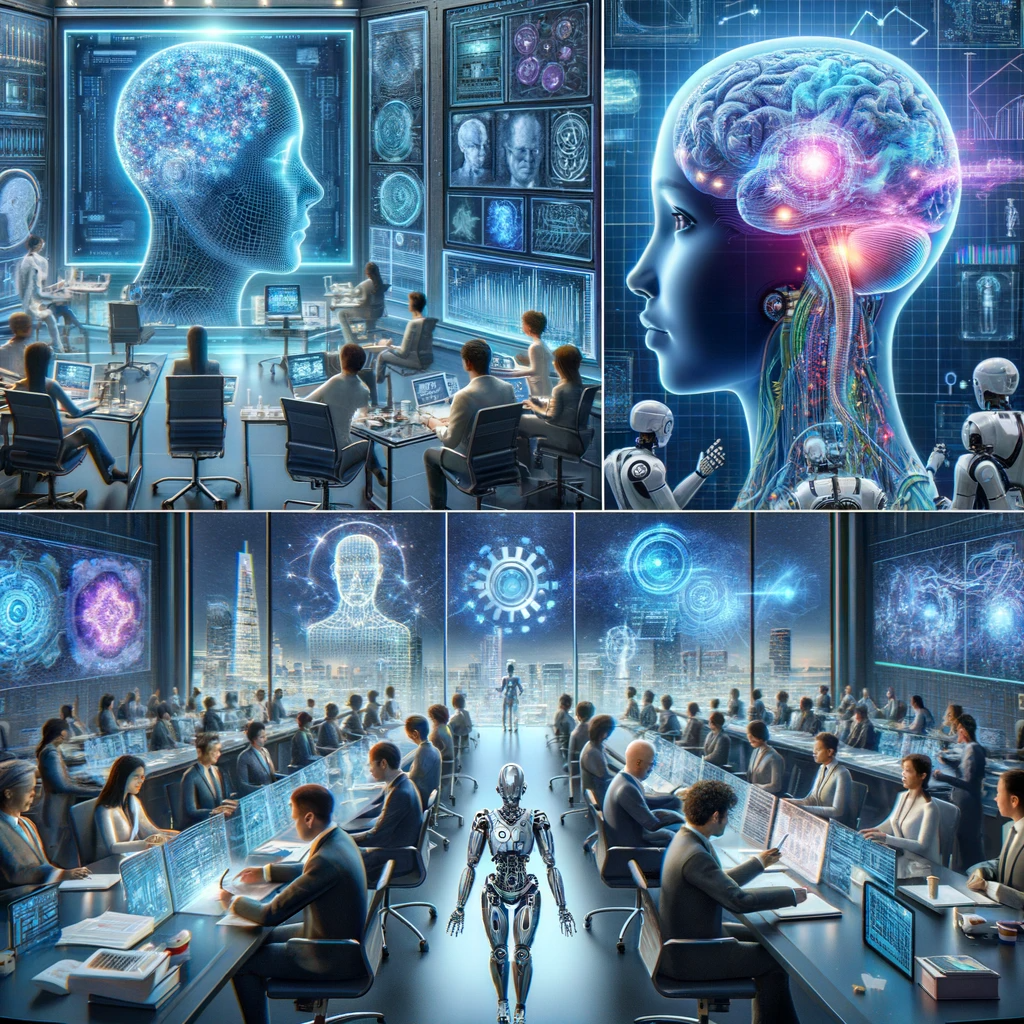Artificial General Intelligence (AGI) has long been a dream of scientists, researchers, and science fiction enthusiasts alike. AGI represents a form of artificial intelligence that possesses human-like cognitive abilities, allowing it to understand, learn, and adapt to a wide range of tasks, just like a human being. While Narrow or Weak AI systems excel in specific tasks, such as image recognition or language translation, AGI aims to achieve a level of general problem-solving and adaptability that mimics human intelligence.
The pursuit of AGI has gained significant momentum in recent years, with tech giants and the scientific community investing heavily in research and development. However, the fundamental question remains: Is Artificial General Intelligence achievable? In this article, we will explore the concept of AGI, the challenges it presents, the progress made so far, the strategies employed, the controversies surrounding it, and what the future might hold for this ambitious endeavor.

Understanding AGI
Artificial General Intelligence, often referred to as “strong AI,” goes beyond the capabilities of Narrow or Weak AI, which are designed for specific tasks. AGI aspires to create machines with the cognitive abilities to perform any intellectual task that a human can. This includes reasoning, problem-solving, learning, and adapting to new situations. Achieving AGI requires a level of sophistication that transcends task-specific AI and simulates the breadth and depth of human intelligence.
AGI research has a rich history dating back to the earliest days of computer science. Pioneers like Alan Turing and John McCarthy laid the groundwork for AI research and the quest for AGI. However, despite significant advancements in AI, achieving a machine that possesses human-like general intelligence remains a formidable challenge.
Challenges in Achieving AGI
The path to AGI is riddled with intricate challenges. One of the primary hurdles is hardware limitations. Simulating the vast neural networks and processing power of the human brain requires substantial computational resources. Researchers continually seek ways to build more powerful and energy-efficient hardware to support AGI development.
Another challenge lies in the complexity of human cognition. While we have made great strides in understanding various aspects of intelligence, replicating the intricacies of human thinking, emotions, and consciousness remains a daunting task. Understanding how to create machines that can learn and adapt in a human-like manner is an ongoing challenge.
Beyond technical obstacles, AGI raises ethical and societal concerns. The potential for mass job displacement as AI systems take over a wide range of tasks is a prominent concern. Additionally, the question of AI alignment—ensuring that AGI systems’ goals align with human values and ethics—remains a critical issue. Preventing AGI from causing harm or unintended consequences is a top priority.
Progress and Milestones
Despite the formidable challenges, significant progress has been made in AGI research. Machine learning models and neural networks have advanced rapidly, achieving remarkable results in various domains. OpenAI’s GPT-3 (Generative Pre-trained Transformer 3) and DeepMind’s AlphaZero are examples of AI systems that have demonstrated human-level or superhuman capabilities in specific tasks, such as natural language processing and game-playing.
These milestones demonstrate the potential of AI to approach AGI in specific domains. While these systems are not truly general in their abilities, they represent significant steps toward achieving broader intelligence and problem-solving skills.
AGI Approaches and Strategies
Researchers employ diverse approaches and strategies in their quest for AGI. Reinforcement learning, where agents learn through interactions with their environment, has shown promise. Neural architecture search, which automates the design of neural network architectures, has led to the development of more efficient AI systems. Transfer learning allows AI models to leverage knowledge gained from one task to perform better in related tasks.
Prominent organizations, such as OpenAI and DeepMind, have dedicated substantial resources to AGI research. These organizations are exploring novel techniques, building large-scale AI models, and collaborating with the global research community to accelerate progress.
The Controversy Surrounding AGI
The pursuit of AGI is not without controversy. Debates within the AI community and society at large revolve around the achievability and implications of AGI. Proponents argue that AGI is not only achievable but also inevitable, given the pace of AI advancements. They believe that the benefits of AGI, such as solving complex global challenges, outweigh the risks.
Skeptics, on the other hand, express concerns about AGI’s feasibility and the potential risks it poses. They emphasize the unpredictability of AGI development timelines and argue that its consequences, both positive and negative, are highly uncertain. Ensuring AGI’s safe and ethical development is a contentious topic.

The Future of AGI
The future of AGI remains uncertain but brimming with potential. While achieving full AGI that matches human intelligence across all domains is a monumental challenge, progress in AI continues to accelerate. Researchers are pushing the boundaries of what AI can achieve, and the field is evolving rapidly.
The timeline for AGI’s development is unclear, with estimates ranging from a few decades to centuries. What is evident is that AGI has the potential to transform industries, solve complex global problems, and enhance our understanding of intelligence itself. However, it also presents ethical, societal, and existential risks that must be carefully managed.
In conclusion, the question of whether Artificial General Intelligence is achievable is one of the most profound and captivating inquiries in the realm of AI and technology. While the challenges are immense, the progress made so far demonstrates the remarkable capabilities of AI. As AGI research continues to advance, it is imperative that ethical considerations, safety precautions, and responsible development practices guide us toward a future where AGI, if achieved, benefits humanity while minimizing risks. The journey toward AGI is a testament to human ingenuity and our unwavering curiosity about the nature of intelligence itself.
